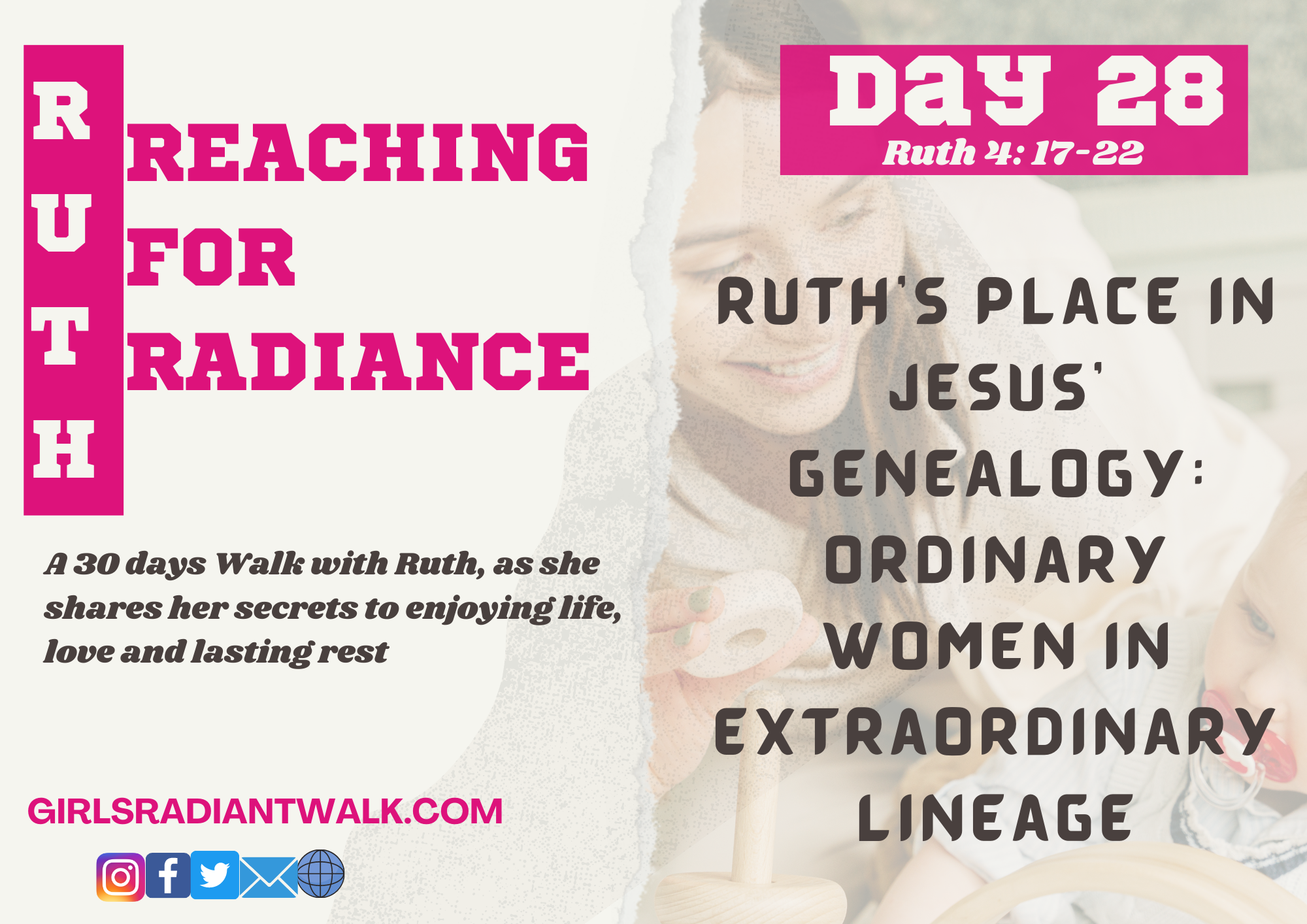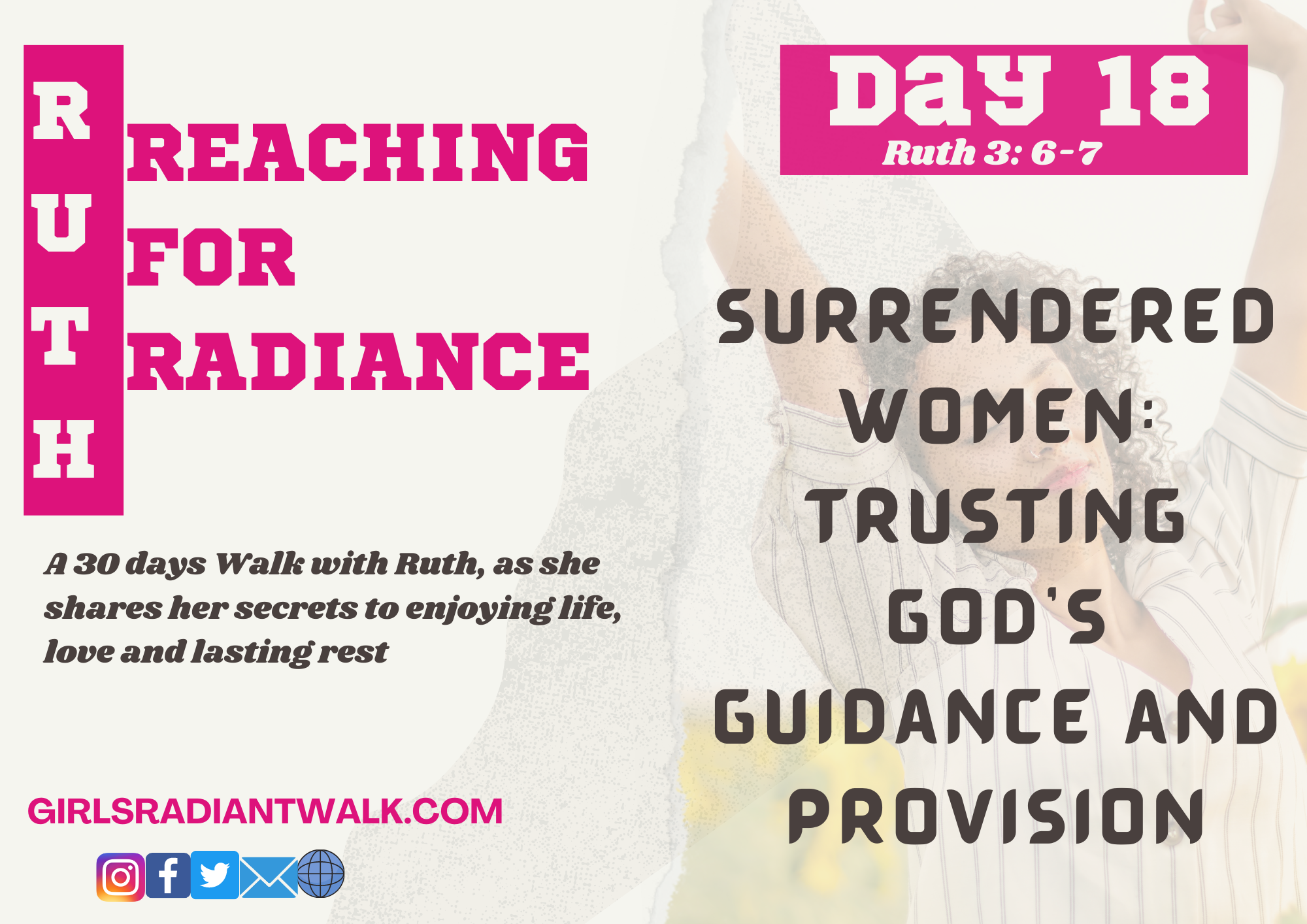“God loves you and everyone has a plan for your life.”
When I heard this some time ago, I paused. It’s a sentiment observed in the life of many people. A script even played out in my life at that time.
But let’s get it right: “God loves you and has a plan for your life.” There’s a crucial distinction.
From the moment we enter this world, life bombards us with messages and expectations. Circumstances, societal pressures, and even loved ones can try to mould us into their version of who we should be, potentially obscuring the unique blueprint God has designed for each of us.
Sound familiar?
Have you ever felt like you’re living someone else’s script? Like everyone’s trying to tell you how to act, dress, speak, or even dream? It’s easy to get entangled in these stereotypes and lose sight of God’s original prototype for your life.
Let’s clarify these terms:
- Prototype: The original or first version of something, often used as a model or template for future development.
- Stereotype: An overly simplified and often inaccurate belief or assumption about a person, group, or thing, based on limited or inaccurate information.
God holds the prototype for your life – a unique and beautiful design that leads to a life of purpose, joy, and fulfilment.
In Jeremiah 29:11, God assures us, “For I know the thoughts that I think toward you, saith the LORD, thoughts of peace, and not of evil, to give you an expected end. “
And in Jeremiah 1:5, He said “Before I formed thee in the belly I knew thee; and before thou camest forth out of the womb I sanctified thee, and I ordained thee a prophet unto the nations.”
Identity Struggles: You’re Not Alone
Many people wrestle with their identity. These struggles can manifest in various ways:
- Self-doubt and uncertainty: Questioning your abilities, worth, and direction.
- Comparing yourself to others: Feeling inadequate or driven by competition.
- Feeling like you don’t belong: Struggling to find your place in communities or relationships.
- Experiencing an identity crisis: Feeling lost and unsure of your values or sense of self.
- Imposter syndrome: Doubting your accomplishments and feeling like a fraud.
- Body image issues: Struggling with self-acceptance and seeing your worth beyond your appearance.
- Clashing with cultural or societal expectations: Feeling torn between societal norms and your values.
- Questions around gender identity or expression: Navigating gender roles, stereotypes, or personal gender identity.
- Trauma from past experiences: Carrying the weight of past hurts that affect your sense of self.
- Major life changes and transitions: Adjusting to new phases of life and rediscovering who you are in the process.
Remember, these struggles are common. Even the strongest among us can face them.
But, take a moment to pause and reflect on these questions:
- Am I truly living out who God created me to be?
- What’s missing in my life that could bring deeper satisfaction and meaning?
- How can I align my actions, choices, and beliefs with God’s divine purpose for?
The Prodigal Son: A Lesson in Lost and Found Identity
The Bible tells the story of a young man who thought he had life figured out. He likely looked at his friends and the influencers of his time, adopting the mainstream idea that a young man’s identity revolved around wealth and indulging in fleeting pleasures.
So, he demanded his inheritance from his father and set off for a distant land. He lived extravagantly, believing this was a good life until his money ran out and famine struck.
Desperate, he resorted to working in a pig house, even envying the pigs’ food.
Was this the life he was destined for? Absolutely not.
One day, as Luke 15:17 describes, “And when he came to himself, he said, How many hired servants of my father’s have bread enough and to spare, and I perish with hunger!”
In that moment of clarity, he saw the stark contrast between his current reality and the potential for a better life. He began to ask questions that would ultimately lead him to redefine his identity and purpose.
Looking at his decisions from that point, we can learn some lessons on steps to break free from false identities.
Three Steps to Reclaim Your Identity in Christ
1. Pause and Think
You don’t have to hit rock bottom to pause and reassess. You could be missing out on years of fulfilment if you continue on a path without knowing if it aligns with God’s plan for your life. It’s like embarking on a road trip without a destination, simply following the flow of traffic. You might end up somewhere unexpected, realizing too late that you’ve taken a wrong turn.
Perhaps you’re coasting through life like the prodigal son, assuming everything’s fine. But take a moment to pause and reflect. Or maybe you’ve hit a crossroads, feeling lost and weary. It’s never too late to course-correct.
So girl:
- Don’t wait for a crisis to examine your life.
- Take intentional time for self-reflection and prayer.
- Ask yourself: “Is my current path leading me toward the life God has planned for me?”
- Consider journaling your thoughts and feelings as you seek clarity.
2. Remember Your Divine Origin
The prodigal son remembered his father. In the same way, God is your Father by creation. Even if you’ve strayed from Him, He still holds the blueprint of your life. He longs for you to return to Him, so He can guide you to discover and walk in the path He has prepared for you.
Now that you know your true identity in Christ, take a step of faith away from the old beliefs and behaviours that held you captive.
Remember:
- You are God’s beloved daughter, created with intention and purpose (Isaiah 44:2).
- Meditate on scriptures that affirm your identity in Christ.
- Pray for God to reveal His truth about who you are and what He has in store for you.
3. Walk by Faith
The prodigal son humbly confessed his past to his father: “I have sinned and am no longer worthy to be called your son.” Humility paves the way for restoration. As we approach God, we should acknowledge our attempts to navigate life independently, seeking identity and worth in things other than Him.
He then expressed his desire for a changed identity: “I don’t even think I’m worthy to be your son anymore. Just treat me like one of your hired servants.” But the father’s love knew no bounds: “You are still my beloved son,” he declared.
Similarly, as we come to God, we should confess our need for Him and our dependence on Him. We are even more privileged than the prodigal son because we have the assurance of God’s promise in John 6:37: “Whoever comes to me I will never drive away.”
Here is how to take this walk of faith:
- Leave the old behind: Let go of the limiting beliefs, toxic relationships, and harmful habits that no longer serve you.
- Seek healing: If past hurts or traumas are holding you back, don’t be afraid to seek professional help or support from trusted friends or mentors.
- Surrender to God: Confess your past mistakes and ask for forgiveness. Embrace your identity as His cherished child and a servant with unique gifts and talents.
Confess Your True Identity in Christ
Speak these powerful truths over your life:
- I am God’s child (John 1:12).
- I am loved unconditionally by God (John 15:9).
- I am fearfully and wonderfully made (Psalm 139:14).
- I have not been given a spirit of fear, but of power, love, and a sound mind (2 Timothy 1:7).
- I am seated with Christ in the heavenly realms (Ephesians 2:6).
- I am God’s workmanship, created for good works (Ephesians 2:10).
- I can do all things through Christ who strengthens me (Philippians 4:13)!
It takes courage, faith, and a willingness to let go of the old to embrace the new. But as you lean into God’s truth and surrender to His loving guidance, you will discover the incredible woman He created you to be.
So, dear sister, shake off the dust, rise up, and step into the fullness of your identity in Christ!






